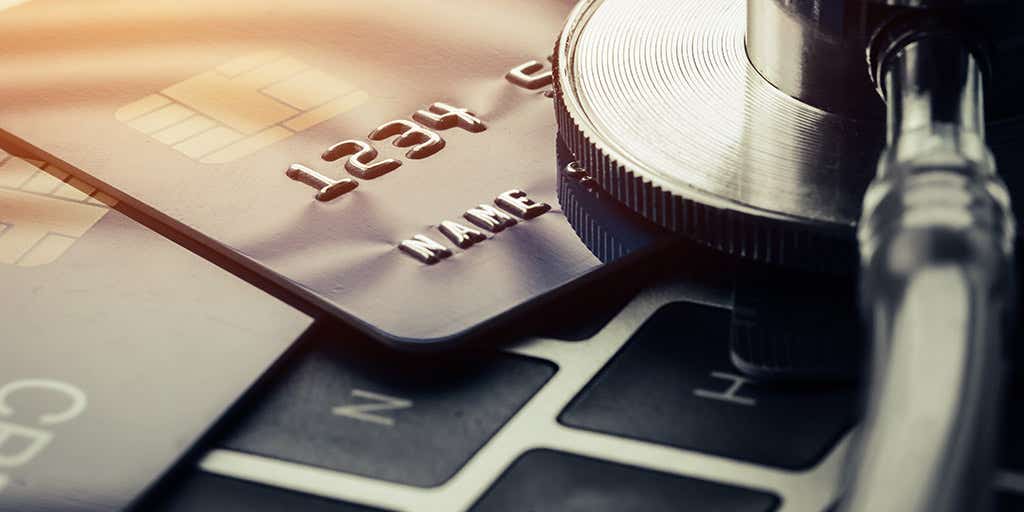- >
- Credit Cards>
- Credit cards for bad credit
Compare our best credit cards for bad credit
Find a credit card even if you have bad credit

Compare credit cards for people with bad credit with our partner Uswitch

What is a bad credit credit card?
If you have bad credit or a low credit score, you’ll find it difficult to get accepted for a standard credit card, and a bad credit credit card may be your best chance of getting the credit you need.
These cards are designed for people with lower credit scores. In practice, this means it's easier to get accepted for one. While you may not be able to get a credit card for bad credit from the more well-known high street banks or credit providers, there are providers that specialise in bad credit.
Typically, these cards charge higher interest rates and offer lower credit limits than credit cards offered to people with better credit ratings.
How do credit cards for bad credit work?
As with all credit cards, bad credit credit cards offer a maximum spend limit. However, this credit limit is generally far lower on a bad credit credit card compared to a standard credit card – typically somewhere between £200 and £1,500.
This is because lenders view those with bad credit as higher risk and more likely to default on their debt compared to someone with good credit. Higher credit limits tend to be offered to borrowers who have a higher credit score and higher income and who are considered to be financially reliable as they are more likely to repay what they owe.
However, if you use your bad credit credit card carefully – in other words, you repay what you owe in full and on time and you don’t exceed your credit limit – your provider might increase your credit limit at regular intervals.
Bad credit credit cards also tend to offer higher interest rates compared to standard credit cards, making it even more important to pay off your balance in full each month.
What is bad credit?
Put simply, your credit score is a number that tells lenders how responsible you are with borrowing. It's used by lenders to assess whether you should be offered credit.
All your credit contracts, everything from a monthly phone contract or broadband deal to your overdraft, mortgage and store cards, are reported to three credit reference agencies (CRAs) – Experian, Equifax and TransUnion. Find out more in our guide on how CRAs work.
Each agency calculates your credit score based on your track record of paying bills on time and keeping within your borrowing limits. This record is your credit history. If you’ve been late on a few repayments or defaulted entirely on some bills, you're likely to have a low score or what's commonly known as bad credit.
You can also have a low score by simply not having much of a credit history - either because you're new to the UK or because you've never borrowed before.
While there's nothing wrong with that, it does mean that lenders have no way of knowing whether you're a responsible borrower.
You can sign up to check what is on your credit record with any of the three credit reference agencies for free.
"A low credit score means lenders see you as a higher risk, so you're less likely to be approved for credit or get access to lower-interest-rate products."
You can find more detailed information in our guide on how to check your credit score.
| Credit agency | Very poor | Poor | Fair | Good/very good | Excellent |
|---|---|---|---|---|---|
| Experian | 0-560 | 561-720 | 721-880 | 881-960 | 961-999 |
| TransUnion | 0-550 | 551-565 | 566-603 | 604-627 | 628-710 |
| Equifax | N/A | 0-438 | 439-530 | 531-810 | 811-1000 |
Credit card providers will use one or all three of the main credit reference agencies in the UK: Equifax, Experian and TransUnion. The table shows what each agency considers a low or high credit score.
How to get a bad credit credit card
Use an eligibility tool
If you have bad credit, using an eligibility tool like through our partners at Uswitch is the best way to protect yourself from damaging your credit further by applying for cards you’ll get rejected for. Instead, the tool shows you the cards you’re most likely to get and because it uses a “soft search” credit check, you can use it as many times as you want without affecting your credit score.
Compare bad credit credit cards
Once you get your results, you’ll ideally want a card that offers the lowest interest rate for the highest credit limit you can get, but you’ll also need to prioritise what’s important to you based on your needs. The results are based on your likelihood of approval, so you can be confident about getting the card you pick.
Fill out an application
It’s easiest to apply for a credit card with bad credit online, but you can also apply by phone or by visiting a branch. You’ll need to provide your name, contact number and other financial details. It can take a week or more to find out if you’ve been accepted, although most online providers will let you know instantly. Once you’ve been accepted, most credit cards arrive within 10 working days.
The importance of using an eligibility tool
If you have bad credit, the last thing you want is to hurt your credit score further.
An eligibility tool, like that available through our partners at Uswitch, uses information that you provide about your individual finances to match you with the cards that you can get.
Your personalised results are based on your likelihood of approval, so you can be confident about getting the card you pick and avoid a rejected application which can negatively affect your credit record.
An eligibility tool, available through our partners at Uswitch, is a fast and low-risk way to ensure you only apply for a card you'll be accepted for.”
Expert tips for using bad credit credit cards
Use an eligibility tool. Always use an eligibility tool to help you find cards that you can get and avoid a rejected application.
Pay your balance in full. Clearing your balance in full will help you avoid the high interest charged on bad credit credit cards. Doing this for several months should also help improve your credit score.
Avoid withdrawing cash. Cash withdrawals using your credit card are something you should avoid at all costs - unless it’s an emergency. Not only does it incur a fee, you’re also charged daily interest until it is paid off.
Pay at least the minimum payment. If you’re unable to pay off the full balance, make sure you at least make the minimum payment by the due date. Failing to do so not only incurs a missed payment fee, but also leaves a mark on your credit report.
Use it for everyday expenses. Use your new credit card for everyday expenses rather than large purchases.
Don’t make multiple applications for credit. Only apply for one credit card at a time. If your application is rejected, refrain from applying for another credit card straight away. Doing so can be seen as a red flag to lenders that you’re desperate for credit, so they'll be less willing to lend to you. Give it time, usually around six months, before applying again.
Advantages and disadvantages of bad credit credit cards
Pros
Cons
Bad credit cards jargon buster
APR
APR stands for “Annual Percentage Rate” and is the total cost of borrowing over 12 months. For example, if your APR is 20%, you will be charged 20p for every £1 borrowed over the course of 12 months. If you pay your balance in full and on time, you will not pay interest.
Balance
Your credit card balance is the amount of money you owe your credit card provider. In other words, it's the amount you borrowed using your credit card to buy goods and services. It's also sometimes referred to as your credit card debt.
Credit limit
Your credit limit is the amount you can borrow on your credit card at any one time. If you exceed this amount, you can be charged a fee - typically £12 - and it can leave a mark on your credit report.
You won’t usually find out your credit limit until the end of an application process - although you can ask your provider to increase – or decrease – your credit limit at any time.
Credit limits are set based on your credit history and your earnings.
Once you've reached your credit limit, you need to make a payment to bring down your balance before you can use the card again. Find out more in our guide to credit limits.
Credit report
Your credit report is your history of borrowing and paying bills over the past few years. Lenders send this information to one or more of the three credit reference agencies, which compile reports on UK residents.
Before deciding whether to let someone borrow, lenders check your report from one or more of the agencies. You can request a copy of your credit reports to ensure there are no mistakes on your file, request changes if you spot one and add notes explaining any missed payments.
Credit score
Your credit score is calculated based on your credit history. Each credit reference agency has its own method of calculating this.
Your credit score will go up for things like making payments on time and down for things like being late or defaulting on a loan. Typically, the higher your score, the more likely you are to be offered a lower rate of interest or higher credit limit.
There is no absolute pass or fail mark attached to a credit score, with each lender making its own decision on what it considers acceptable.
Default
If you miss a few payments, generally between three and six, your credit card provider will send you a default notice, giving you at least 14 days to pay the amount stated on the notice.
Court action could be used to recover the debt, and if you fail to make the payment, your account will be “defaulted”, meaning you won’t be able to use your credit card anymore. It is possible that your provider may have already blocked spending on your account after the first couple of missed payments. A record of the default will also stay on your credit report for six years, making it harder to get any form of credit throughout this time.
Direct Debit
A Direct Debit is when you give a company permission to take payments automatically from your bank account. It decides the amount, but you are free to cancel the arrangement. For example, you can set up a Direct Debit to pay off your credit card. This could be for the minimum amount due, a fixed sum, or the entire balance.
Eligibility criteria
Minimum eligibility criteria define the attributes the provider expects customers to have before offering them a product. They’re designed to help customers understand if they should proceed with an application.
Meeting the minimum eligibility criteria is not a guarantee of approval. Eligibility criteria include factors such as age, salary and sometimes other details, depending on the product.
Hard credit check
If you’ve made an application for credit, such as a credit card, loan or mortgage, lenders will carry out an in-depth check of your credit report, known as a hard credit check.
This is a detailed look into your financial history, especially your borrowing history, so a lender can see your track record of repaying money you've previously borrowed.
A hard check will show any negative marks on your credit report, like overdue payments, missed payments, previous credit applications and even bankruptcies.
Every time a hard check is carried out, it leaves a mark on your credit report, which can hurt your credit score.
Interest-free credit
Interest-free credit cards allow you to either transfer a balance, make purchases or transfer cash to a current account without paying any interest on your balance for a set period. However, you must keep making at least the minimum monthly repayment during this time.
Once the 0% deal is over, you will be charged interest on any remaining debt at your standard APR. With balance transfers and money transfers, you will usually have to pay a transfer fee.
Introductory offer
Credit card introductory offers include bonus reward points, extra cashback, 0% on balance transfers or 0% on purchases.
Introductory offers are used to attract new customers, but once they expire, they revert to the standard offer or rate. When this happens, you should check if you’re still getting the best deal or whether you need to switch to a different credit card.
Minimum monthly repayment
Every credit card has a minimum monthly repayment amount set out in its rules, which you can find in the summary box.
The minimum payment is calculated by working out what interest you've built up over the past month and then adding a small percentage of your total balance. If you have a small overall balance, there might be a fixed sum instead - for example, £5.
As minimum monthly repayments are set at such low levels, it’s best to pay off more than this each month if you can. You’ll clear your debt faster and pay less interest too.
Soft credit check
A soft credit check is a top-level view of your financial history. It lets lenders assess you for their offers and can show you what you could be eligible for.
Although a soft credit check is recorded, it doesn’t leave a mark on your credit file. This means that while you can see soft checks when you look at your own report, lenders can't. A soft credit check won’t impact your credit score, but you’ll be able to see if anyone has checked your credit history.
In certain industries, some employers will perform a soft credit check if you’ve recently applied for a job with them.
Bad credit FAQs
What if I have no credit record?
You can use a credit card to build your credit history even if you have never borrowed before. Here is how to get your first credit card.
What counts as bad credit?
Bad credit is simply a negative assessment of your finances by a credit reference agency or lender. In this case, your credit record might prevent financial companies from lending to you.
What is a bad credit score UK?
A bad credit score is generally a low number, but the exact score range will depend on the credit reference agency. Experian, Equifax and TransUnion all use slightly different scoring systems, but typically the lower the number, the worse your credit score. With Experian, a bad credit score is between 0 and 720, with Equifax it’s between 0 and 438, and with TransUnion it’s between 0 and 565.
Could using a credit card make my credit record worse?
Yes, your credit record could get worse if you go over your credit limit, miss repayments, build up too much debt or apply for cards that turn you down.
What APR will I get?
Your card provider sets your interest rate (APR) based on the details you’ve provided on your application form and your credit report. Here is how interest works.
What credit limit will I get?
Your card provider will decide your credit limit by looking at your finances, but credit cards for bad credit usually offer lower limits. Here is how credit limits work and are decided.
How do I get my first credit card?
Here is how to find a card more likely to accept you even if you have never used one before and what you need to know about using credit cards.
Other options for borrowing with bad credit
Bad credit loans
These are usually unsecured personal loans. They are meant for those with poor credit histories – or those with a limited or no history at all – who are usually excluded by mainstream lenders.
Interest rates are typically much higher on bad credit loans than on normal personal loans. This makes them an expensive option for borrowing money. There might be strict limits on the amount you can borrow too.
Guarantor loans
Guarantor loans are personal loans that require a close friend or family member to act as a guarantor. This means they agree to repay the loan for you if you're unable to.
The interest rates are often lower than for bad credit loans because the lender has added security that the loan will be repaid.
However, your guarantor should be aware of what they’re signing up to as being a guarantor is a major commitment. They will also need a good credit score and be a homeowner.
Credit union loans
Credit unions offer savings accounts and loans to local communities. They are often low-cost and significantly cheaper than other lenders. If there's one in your area, they could be a good option for a small loan (usually under £3,000).
To borrow from a credit union, you usually have to become a member and share a common bond with other members. This could be living in the same area or working for the same company.
Budgeting loans
These are interest-free loans from the government. The maximum amount you could get is £812 and the money must be used for certain expenses, like advance rent or funeral costs. To be eligible for a budgeting loan, you must be receiving certain benefits from the government.
If you're already being paid Universal Credit instead of these benefits, you may be able to get a Budgeting Advance instead. You can apply for a budgeting loan on the gov.uk website.
Didn’t find what you were looking for?
Below you can find a list of our most popular credit cards:
Hub of information!

Super accessible and easy to use

Very helpful











